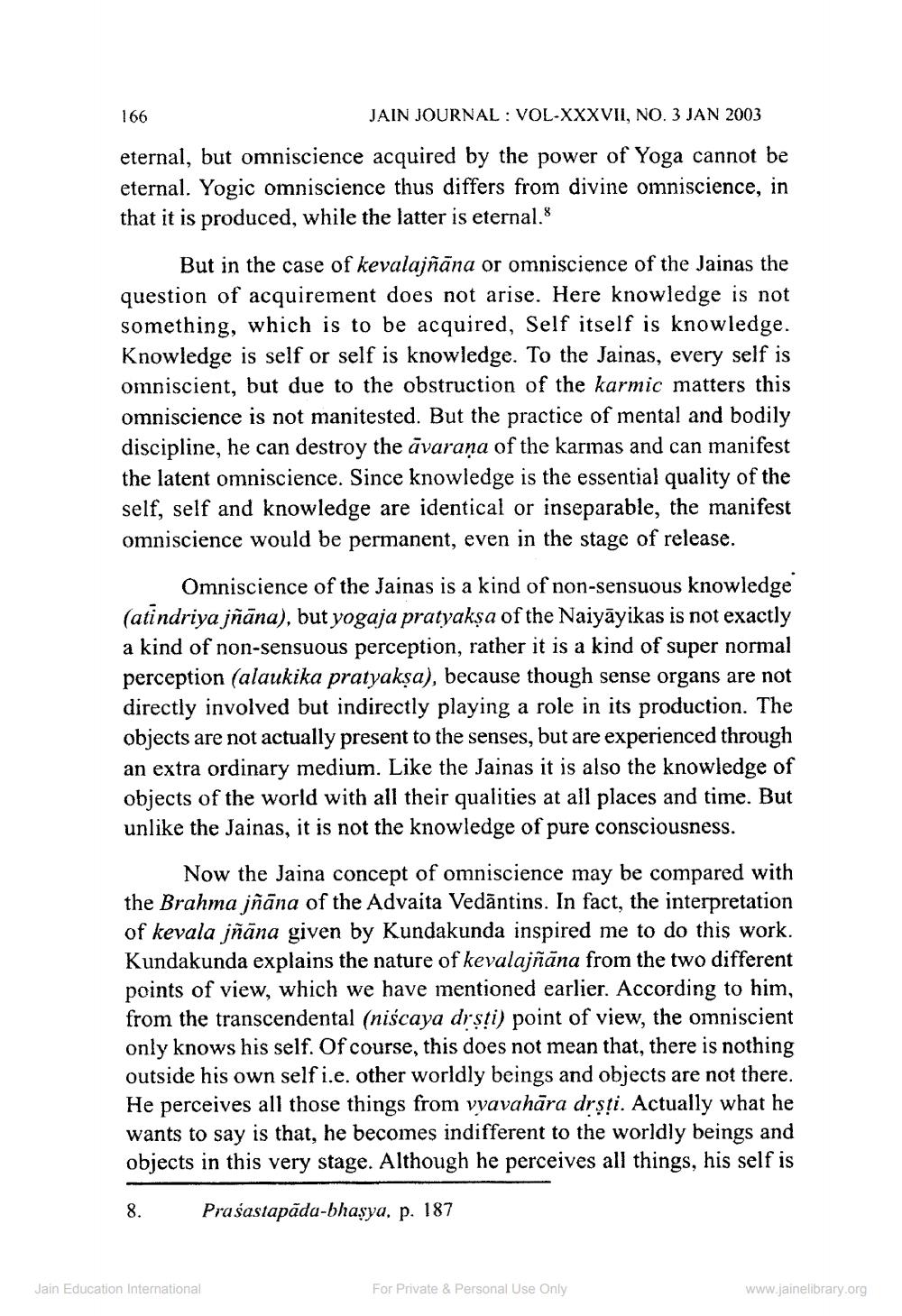________________
166
JAIN JOURNAL : VOL-XXXVII, NO. 3 JAN 2003
eternal, but omniscience acquired by the power of Yoga cannot be eternal. Yogic omniscience thus differs from divine omniscience, in that it is produced, while the latter is eternal.8
But in the case of kevalajñāna or omniscience of the Jainas the question of acquirement does not arise. Here knowledge is not something, which is to be acquired, Self itself is knowledge. Knowledge is self or self is knowledge. To the Jainas, every self is omniscient, but due to the obstruction of the karmic matters this omniscience is not manitested. But the practice of mental and bodily discipline, he can destroy the avaraņa of the karmas and can manifest the latent omniscience. Since knowledge is the essential quality of the self, self and knowledge are identical or inseparable, the manifest omniscience would be permanent, even in the stage of release.
Omniscience of the Jainas is a kind of non-sensuous knowledge (ati ndriya jñāna), but yogaja pratyakṣa of the Naiyāyikas is not exactly a kind of non-sensuous perception, rather it is a kind of super normal perception (alaukika pratyakşa), because though sense organs are not directly involved but indirectly playing a role in its production. The objects are not actually present to the senses, but are experienced through an extra ordinary medium. Like the Jainas it is also the knowledge of objects of the world with all their qualities at all places and time. But unlike the Jainas, it is not the knowledge of pure consciousness.
Now the Jaina concept of omniscience may be compared with the Brahma jñāna of the Advaita Vedāntins. In fact, the interpretation of kevala jñāna given by Kundakunda inspired me to do this work. Kundakunda explains the nature of kevalajñāna from the two different points of view, which we have mentioned earlier. According to him, from the transcendental (niscaya drsti) point of view, the omniscient only knows his self. Of course, this does not mean that, there is nothing outside his own self i.e. other worldly beings and objects are not there. He perceives all those things from vyavahāra drșți. Actually what he wants to say is that, he becomes indifferent to the worldly beings and objects in this very stage. Although he perceives all things, his self is
8.
Prasastapāda-bhașya, p. 187
Jain Education International
For Private & Personal Use Only
www.jainelibrary.org




